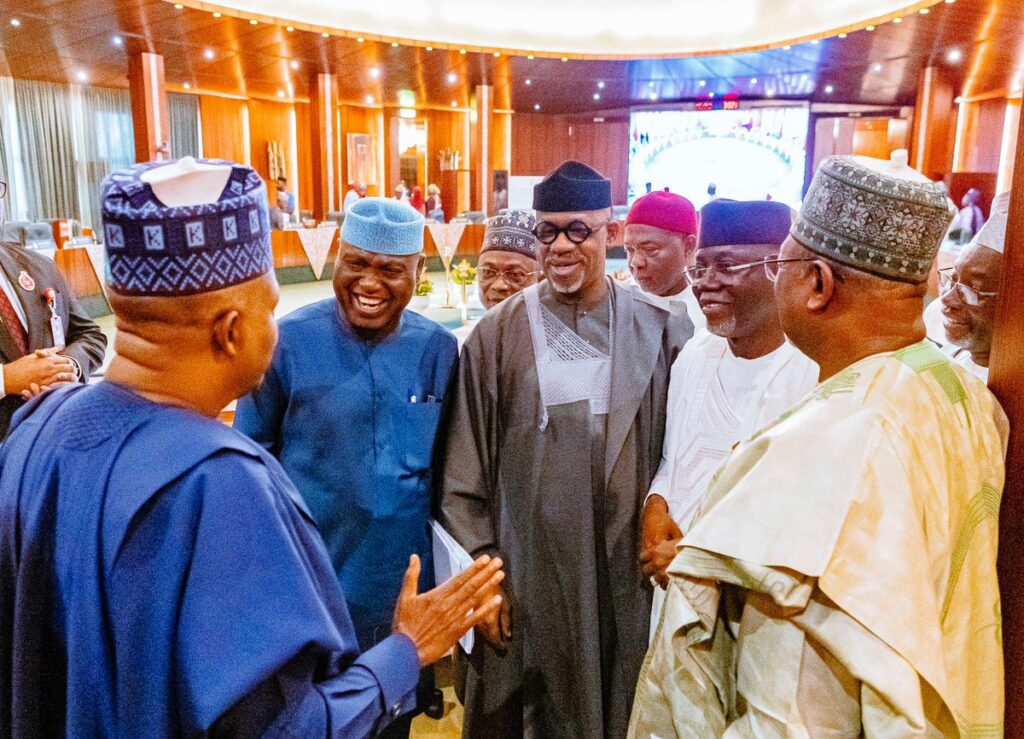The National Economic Council (NEC) has taken decisive steps to tackle the ongoing issues plaguing Nigeria’s power sector, including the recent power grid collapses, by establishing a committee to implement the National Electrification Strategy.
This initiative is aimed at ensuring reliable and affordable electricity access across the country.
At the 146th meeting of NEC held on Thursday at the Presidential Villa, Abuja, Vice President Kashim Shettima, who chairs the Council, underscored that access to electricity is a fundamental right, essential for economic growth.
He emphasised that ‘electricity is the oxygen of economic growth’ and must be treated as a basic necessity rather than a luxury.
In a bid to address the challenges of electricity access, the Council constituted a new committee led by Cross River State Governor, Bassey Otu.

This committee will focus on deepening states’ involvement in the implementation of the Electricity Reform Act 2023 and the National Electrification Strategy.
The group includes governors from Katsina, Gombe, Osun, Imo, and Plateau states, along with key federal officials such as the Ministers of Finance, Power, and Budget, as well as the Managing Directors of the Rural Electrification Agency (REA) and the Niger Delta Power Holding Company.
READ ALSO: Lagbaja: Tinubu postpones NEC meeting
During the meeting, the Council recognised the need for a reformed and diversified electricity system to empower regional needs and ensure equitable access to energy.
A key aspect of the strategy is the promotion of private-sector-led, distributed renewable energy generation, which will enhance electricity availability for households and small enterprises, particularly in rural areas.
Shettima also highlighted other critical sectors needing urgent attention, including energy infrastructure, human capital development, and Nigeria’s creative industries, which he said could significantly boost the nation’s economic future.

He called for greater support for Nigeria’s burgeoning creative sector, which has garnered global recognition through its music, films, and cultural exports.
In addition to discussions on power reform, the meeting also addressed the ongoing debate on the establishment of state police.
The NEC has mandated states to submit their positions on the matter by the next meeting to facilitate a unified stance on the issue.
Other key highlights included a presentation on the Special Agro-Industrial Processing Zones (SAPZ), with states urged to support the initiative, which aims to stimulate agricultural and industrial development across the country.
The Council also approved key governance appointments for the Nigeria Sovereign Investment Authority (NSIA), aiming to strengthen the country’s investment strategy for critical sectors.
READ ALSO: Lagbaja: Tinubu postpones NEC meeting
The meeting also featured updates on Nigeria’s fiscal balances, with the Excess Crude Account standing at $473.7 million and the Stabilization Account at over N33 billion as of November 20.
Additionally, discussions on NASENI’s innovations in solar and electric vehicle technology were noted, with states encouraged to leverage these advancements to foster industrial and economic growth.
This comprehensive approach by the NEC reflects the government’s determination to address Nigeria’s power challenges while positioning the nation for long-term economic transformation.


